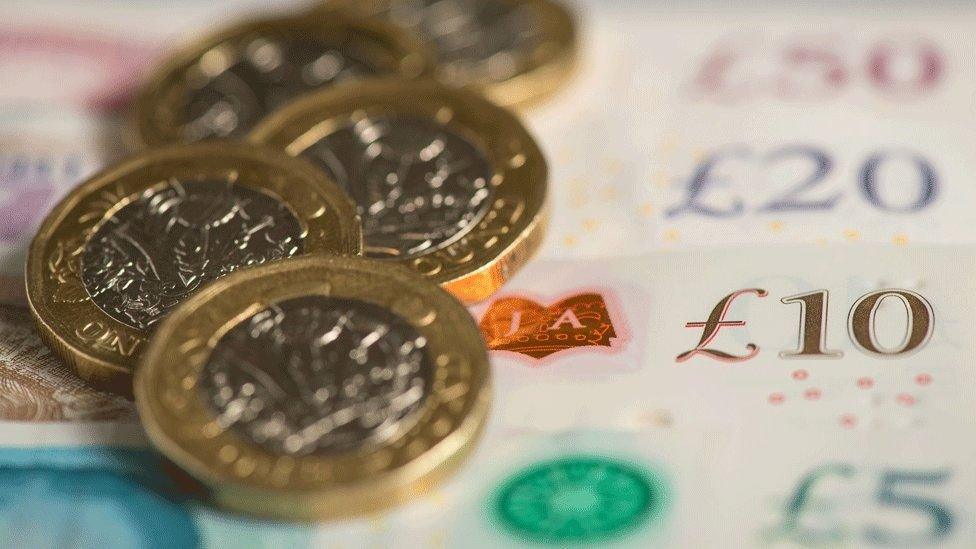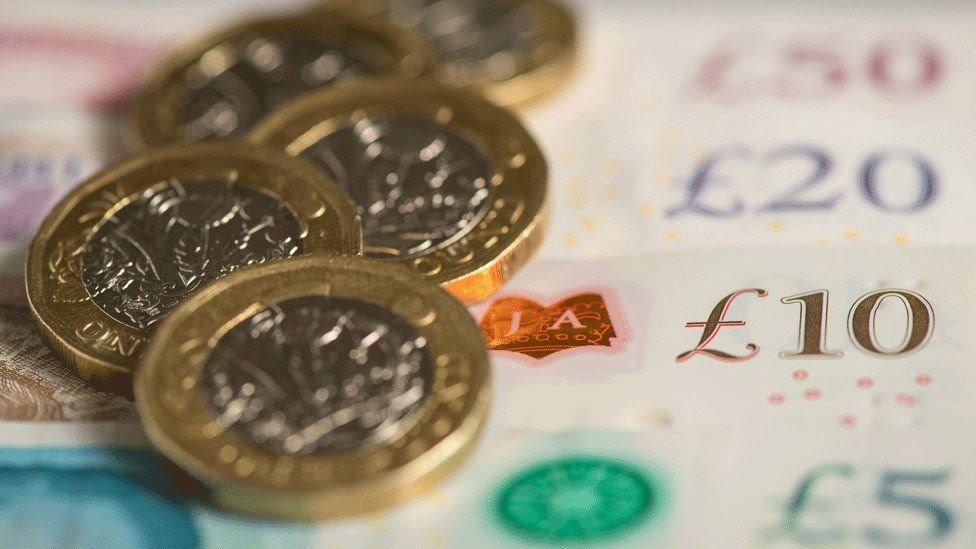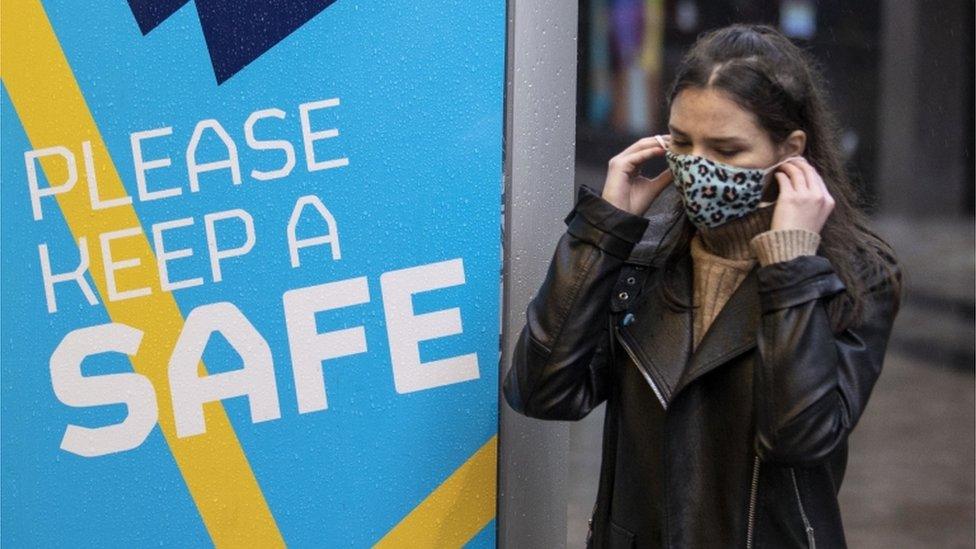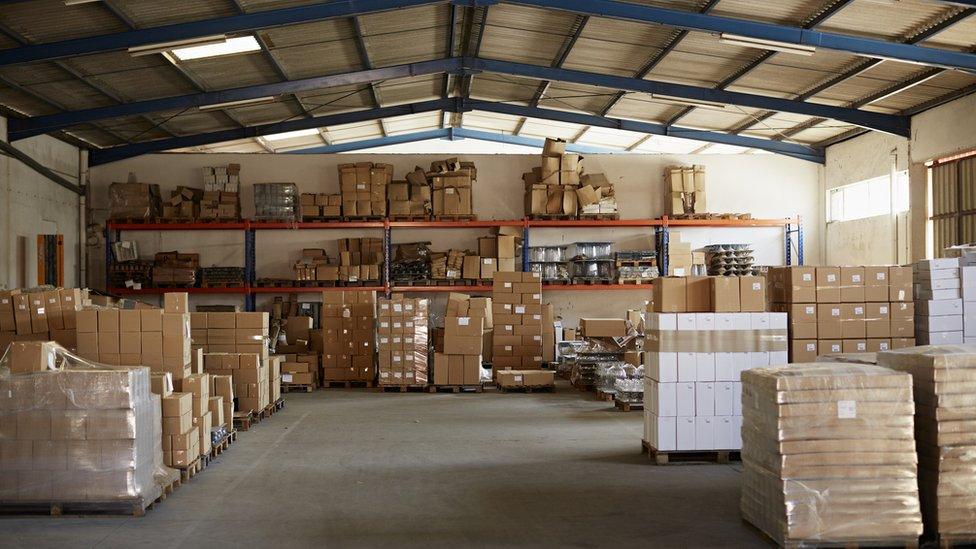Northern Ireland economic output reached 13 year high in summer
- Published

NI achieved a higher level of growth compared to the UK over the quarter
The output of the Northern Ireland economy reached a 13 year high during the summer of 2021.
The services sector grew strongly as the economy fully reopened from a pandemic lockdown.
During the quarter July-September, growth was 1.5% compared to the previous quarter while on an annual basis growth was 4.6%.
The Northern Ireland economy is now an estimated 3% bigger than it was before the onset of the pandemic.
The Northern Ireland statistics and research agency Nisra said that over the quarter and the year the performance was broadly similar to that seen in Scotland, the UK as a whole and in the Republic of Ireland.
"NI achieved a higher level of growth compared to the UK over the quarter (1.5% vs 1.1%) whereas the UK grew at a faster rate over the year (4.6% for NI and 6.8% for the UK)," it said.

Similar growth is unlikely in the fourth quarter as the hospitality sector faced new pandemic restrictions
"Both NI and Ireland showed positive rates of growth over two years at 3.0% and 23.7%, in contrast, the UK and Scotland experienced a reduction in biennial change (-1.6% and -2.1% respectively)."
The Northern Ireland economy is still 2.5% smaller than it was at the peak of the property bubble in the middle of 2007.
The strong performance of the service sector in the third quarter is unlikely to be repeated in the fourth quarter as the hospitality sector faced new pandemic restrictions.
That is reflected in a new Danske Bank forecast which has also lowered its growth prediction for 2022.
The bank estimates that the Northern Ireland economy grew by 6.2% in 2021, and is now forecasting growth of about 4% in 2022, down from its previous forecast of 4.7% for the year.

Danske Bank chief economist Conor Lambe said consumers are likely to be more cautious at the start of 2022 with Covid cases rising
"Growth is expected to have slowed in the fourth quarter as supply side issues continued and the emergence of the new Omicron coronavirus variant likely stifled activity in the consumer-focused sectors," chief economist Conor Lambe said.
"The new coronavirus variant and the rise in positive Covid-19 case numbers have increased the likelihood of consumers behaving more cautiously at the beginning of 2022
"In addition to this, high inflation and supply chain disruption are continuing to pose challenges for consumers and businesses."
Related topics
- Published12 January 2022

- Published10 January 2022

- Published28 December 2021

- Published29 November 2021
